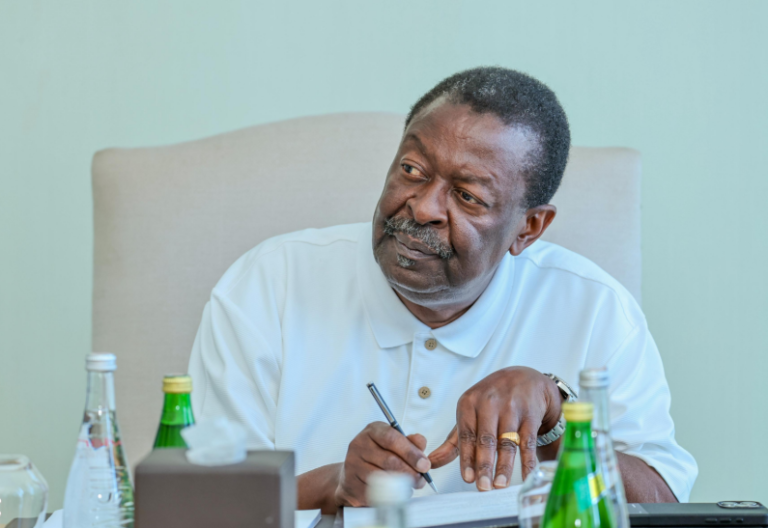Mudavadi’s democracy arguments are flawed

Prime Cabinet Secretary Musalia Mudavadi on Saturday grabbed another opportunity to pontificate about what he thinks is a better system of government.
Speaking at a funeral service in Soy, Uasin Gishu county, he presented a false dichotomy between civilian and military governments, suggesting that all civilian governments are inherently better regardless of their performance.
This argument ignores the reality that some civilian governments can be deeply corrupt, incompetent or authoritarian (doesn’t this ring a bell?), while some military interventions have occurred in response to the failures of civilian governments.
While we understand his point that artificial intelligence is being used to make military leaders appear more articulate – an allusion, we assume, to Burkina Faso’s military ruler Ibrahim Traore – the argument sounds frivolous and petty.
No doubt, effective communication is a useful tool in leadership, but speaking well alone isn’t enough to guarantee success.
Mudavadi also asserted that no other country in Africa has a democracy like Kenya’s, a sweeping claim that ignores other African democracies such as South Africa, Ghana and Botswana.
His words amount to jingoistic rhetoric rather than analysis based on fact.
He was also selective in presenting evidence to support his claim that Kenya is more democratic than many other African countries.
He mentioned politicians being turned away at airports in neighbouring countries as evidence of Kenya’s superior democracy, but doesn’t provide context about why this happened or whether it was justified.
Mudavadi’s central argument essentially boils down to “civilian government is better because it’s civilian government”.
He doesn’t address justifiable concerns about corruption or the quality of governing that might drive citizens to consider alternatives like military rule.
But he’s smart enough to know—and should acknowledge—that democratic legitimacy depends on more than just elections.
It requires the rule of law, protection of rights and accountability. Some elected governments can become authoritarian or fail to serve their people—again, something familiar to Kenyans.
Mudavadi’s overall argument relies more on a shallow appeal to democratic ideals than on a substantive analysis of governance outcomes or addressing the root causes that might make alternative forms of government attractive to some populations. And for that reason, his speech was a wasted opportunity.















